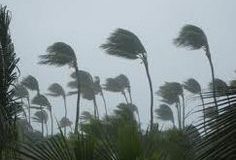
Sinus refers to the air cavity in the cranial bones near the nose, ears and eyes. Sinus infection is common with airplane travelers. Travelers can have sinus infection during or after their travel. Most people feel pain and pressure while on an airplane. This is due to the anatomy of the ear and the change of pressure on the flight. The reason why people tend to contract sinus infections include;
a: Low humidity in the plane cabin
b: Dry air in the airplane
c: Sharing stale air with other travelers with more bacteria and virus than the normal environment
d: Change of pressure during climb and descent
In order to obtain sinus pressure relief, travelers are recommended to take plenty of treated water during and after flight. The plane cabin tend to have very dry air, especially in high altitude. This way, you will retain your body moisture and avoid dehydration. Drinking plenty of water will also help to keep your nasal system moist. Limit your alcohol intake during your travel to avoid getting dehydrated.
Travelers are advised to use Saline Solution during flight. Using the Saline Solution at least once per hour will help to keep your nose moist. Chewing gum and swallowing frequently will activate the muscles and relief sinus pressure. Patients with chronic and ear problems are advised to use decongestants such as pills and sprays to improve the function of the Eustachian tube.
Try to keep awake during your flight to avoid any discomfort. If you are accompanied by young children over three years, try to keep them busy by giving them chewing gum. You can also give them snacks as you nurse the little ones. Keep your children awake especially during landing and take off.
Cold fever is caused by failure of the natural defense of the body mucus clearance system. If you are suffering from cold, having active sinus or ear infection, the best thing for you is to postpone your travel for another day. Avoid getting chilled or over fatigued while on air travel. To overcome such situation, wear warm clothing during cold weather conditions. You can also carry tea bags to prepare hot tea when it is cold in the plane.
Ask your doctor to advice you on the best moisture gel to carry. With the appropriate gel, virus will hardly enter your body. Your doctor may recommend an antibiotic ointment that will help to cover your nasal membranes and kill other related bacteria.

Source by Jackline Mwathe
 Vitamin Agent The Health & Naturalistic Source
Vitamin Agent The Health & Naturalistic Source





